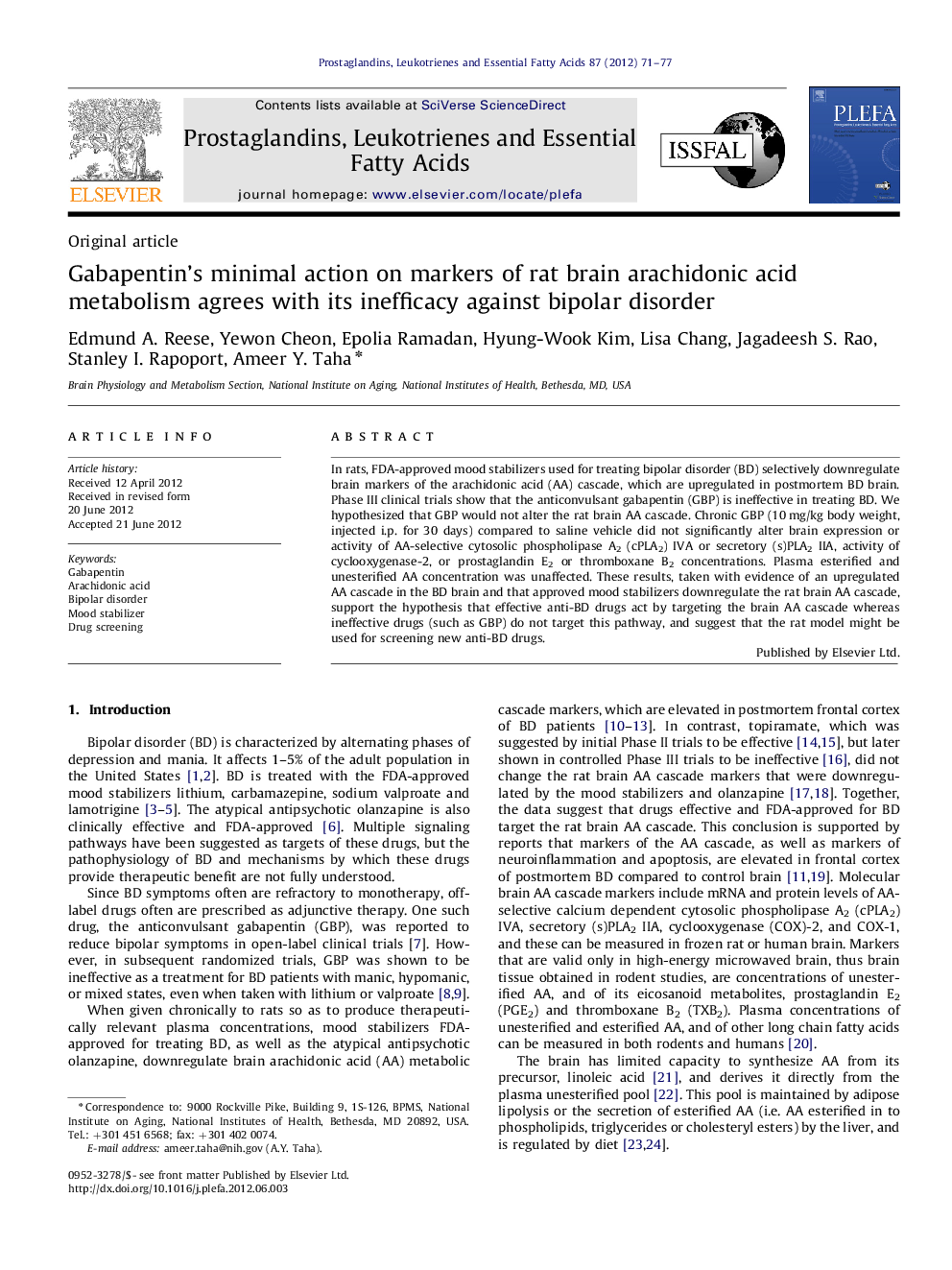| Article ID | Journal | Published Year | Pages | File Type |
|---|---|---|---|---|
| 2777859 | Prostaglandins, Leukotrienes and Essential Fatty Acids (PLEFA) | 2012 | 7 Pages |
In rats, FDA-approved mood stabilizers used for treating bipolar disorder (BD) selectively downregulate brain markers of the arachidonic acid (AA) cascade, which are upregulated in postmortem BD brain. Phase III clinical trials show that the anticonvulsant gabapentin (GBP) is ineffective in treating BD. We hypothesized that GBP would not alter the rat brain AA cascade. Chronic GBP (10 mg/kg body weight, injected i.p. for 30 days) compared to saline vehicle did not significantly alter brain expression or activity of AA-selective cytosolic phospholipase A2 (cPLA2) IVA or secretory (s)PLA2 IIA, activity of cyclooxygenase-2, or prostaglandin E2 or thromboxane B2 concentrations. Plasma esterified and unesterified AA concentration was unaffected. These results, taken with evidence of an upregulated AA cascade in the BD brain and that approved mood stabilizers downregulate the rat brain AA cascade, support the hypothesis that effective anti-BD drugs act by targeting the brain AA cascade whereas ineffective drugs (such as GBP) do not target this pathway, and suggest that the rat model might be used for screening new anti-BD drugs.
